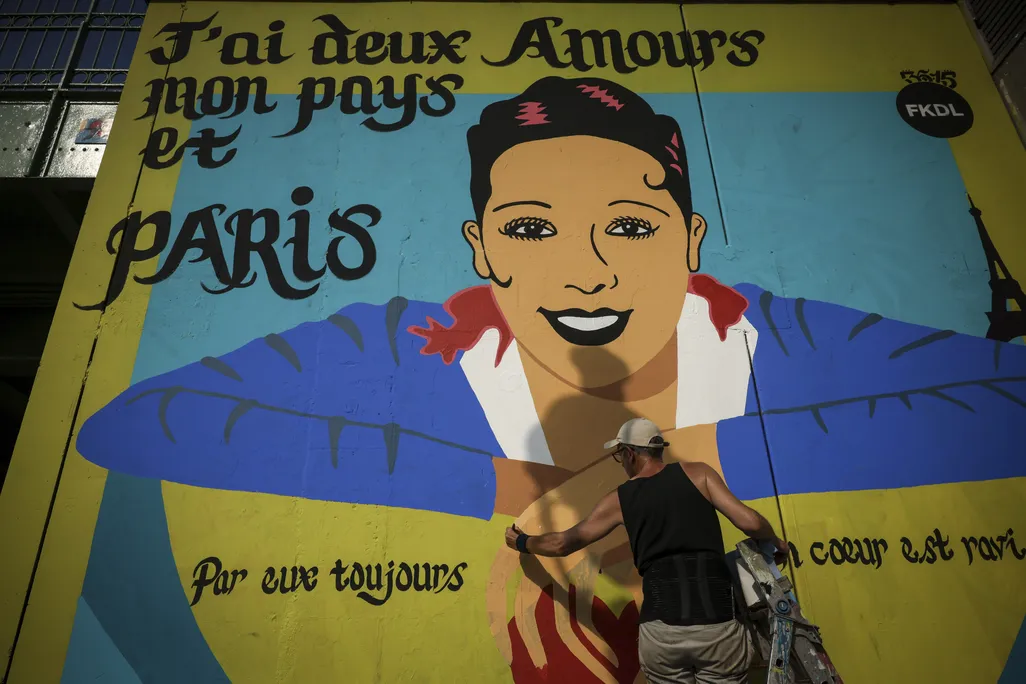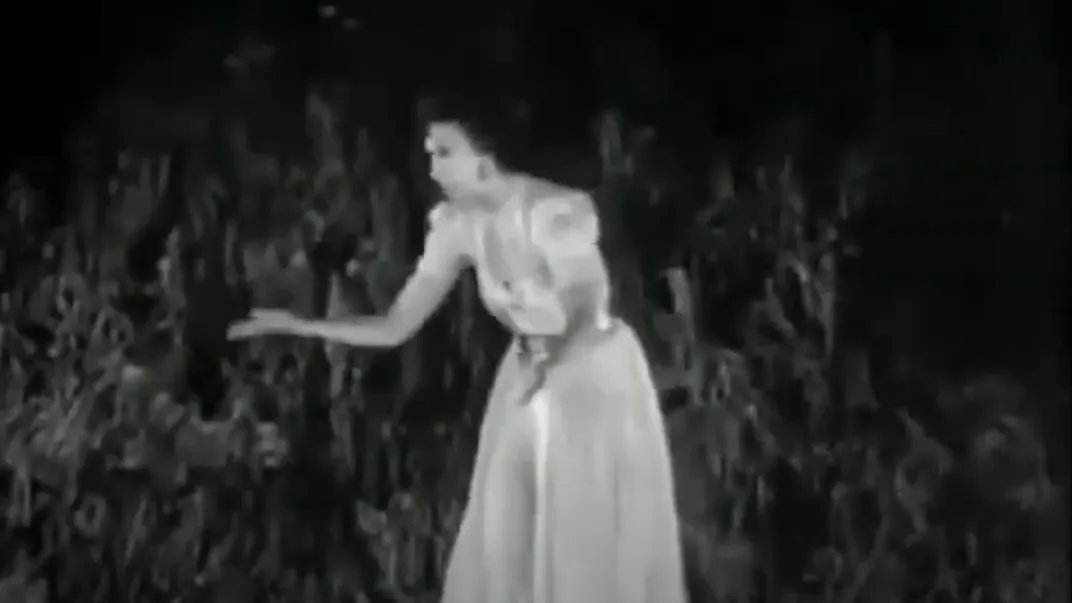A Smithsonian magazine special report
A Vibrant Mural Celebrating Josephine Baker’s ‘Two Loves’—‘My Country and Paris’—Has Been Unveiled in France
The colorful street art, which features a quote from one of her songs, honors the iconic singer, dancer and civil rights activist’s enduring legacy

A bright mural of Josephine Baker, the Jazz Age entertainer and civil rights activist, now peers over Paris, the city she made her home.
The mural comes from urban artist Franck Duval, known as FKDL, who tells the Associated Press’ Nicolas Garriga that his work focuses on “bringing women back into the urban landscape.”
The mural features Baker peering over a ledge with a big smile on her face. A quote from one of Baker’s songs is written in a bold Gothic font in French: “I have two loves: my country and Paris.”
Born Freda Josephine McDonald in St. Louis, Missouri, in 1906, Baker witnessed vile racism from a young age and worked odd jobs to make ends meet. If she couldn’t find work, she would dance on the street and gather change from onlookers, according to the National Women’s History Museum’s Arlisha Norwood. Her routine landed her a spot in a Black theater troupe called the Jones Family Band when she was a teenager.
The entertainer married around this time and took her husband’s last name, Baker. They divorced not long after, when her career started to take off, but she kept his name for the rest of her life.
The singer and dancer found work in New York City, where the Harlem Renaissance was in full force, in Vaudeville shows and Broadway revues. But it wasn’t until she sailed to Paris in 1925 that she got her big break: “I became famous first in France in the ’20s,” Baker told the Guardian’s Tim Murari in 1974. “I just couldn’t stand America, and I was one of the first colored Americans to move to Paris.”
Baker became a sensation. Known as “the Black Venus,” tickets to her dance performances were some of the most sought-after in Paris. Pablo Picasso drew her often, while Ernest Hemingway called her “the most sensational woman anyone ever saw.” She travelled around the world to perform and, in 1927, became the first Black woman to star in a major film: Siren of the Tropics.
One of Baker’s earliest drives, according to her 1949 memoir, was to help others: “I promised myself that when I was strong,” she wrote, “I would fight everyone who was mean to the poor, whether they were kings or not.” That memoir, Fearless and Free, was translated from French to English for the first time earlier this year.
Quick fact: Josephine Baker’s wartime accolades
For her work with the French Resistance, Baker was awarded the Legion of Honor and the Croix de Guerre.During World War II, she joined the fight against the Nazis as a spy, assisting the French military “by passing on secrets she heard while performing in front of the enemy,” per the National Women’s History Museum. She recorded the sensitive information by writing it down in invisible ink on sheet music.
Upon returning to the United States in the 1950s, Baker threw herself into the growing fight against racial discrimination. She refused to perform for segregated audiences, and because she was so beloved, club owners would often integrate their audiences for her performances.
In 1963, she spoke at the March on Washington for Jobs and Freedom, detailing her life as a celebrity abroad versus in the country she was born in: “I do not lie to you when I tell you I have walked into the palaces of kings and queens and into the houses of presidents,” she said. “But I could not walk into a hotel in America and get a cup of coffee, and that made me mad.”
Baker gave her last performance in 1975 to a sold-out crowd, and she died later that year. In 2021, Baker received one of France’s highest honors: She was reinterred in Paris’ Panthéon monument, the fifth woman and the first Black woman to be buried in the landmark.
Now, she’s also memorialized on a Paris wall. The mural of Baker is one of several painted recently as part of Paris Colors Ourq, a street art festival.
At the unveiling of the mural on July 19, Baker’s son, Brian Baker, told the AP that he felt “moved” and “happy.” Brian was one of Josephine’s 12 adopted children from different countries, whom she called her “rainbow tribe.”
“This is part of a memory of my mother,” Brian said.

